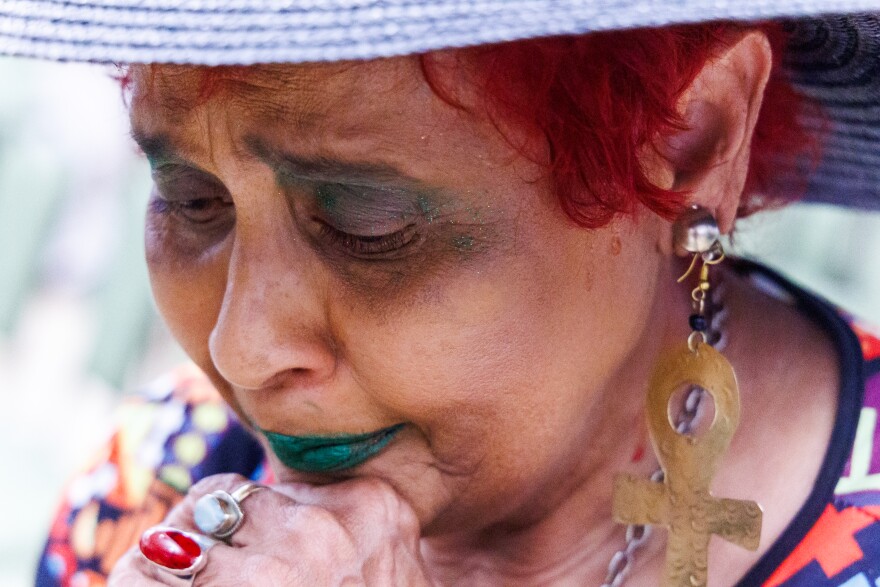To mark the 70th anniversary of the U.S. Supreme Court’s ruling in Brown v. Board of Education, VPM News spoke to Virginians who were students during the period of school segregation and eventual integration.
Yemaja Jubilee is a life coach, poet and author who was denied attendance at what was then Longwood College — now Longwood University. This past spring, the school awarded honorary degrees to Jubilee and others affected by shuttered schools during Massive Resistance and segregation.
Jubilee shares her story below.
The following has been edited for length and clarity.
I grew up in Charlotte County, Saxe, Virginia.
One of the first incidents that I had about realizing that I was Black growing up was the fact that I couldn't go to the Rexall drug store and sit on the stool. I didn't know that I couldn't sit there. I wanted a soda, and when I sit down with this white lady, she moved. I just thought it was a game, so I moved again with her. The druggist came to me and told me that I couldn't sit there.
I went to Central High School in Charlotte, which was segregated at that time. And growing up, my parents valued education, because they only went to the fifth grade. It was assumed that I would go to college.
Miss Irma Blackwell was the superintendent over the Black schools and she told me, because my grades were so good, "You need to go to Longwood."
Well, when Miss Irma Blackwell and I got the letter back with my parents and everything, it said that I wasn't accepted. Miss Irma Blackwell was not satisfied with that, so she told me, she said, "Come with me."
She put me in her car: "We're going to go to Longwood and we're going to see because you are in the top three of your class," and I was an A-student. “We're going to see why you didn't get accepted.”
And I got in the car with her.
She went into the office, and she told me, “You didn't get accepted because you were colored.” And then I got in the car and cried. “Is something wrong with me?” But she said, “Because you were colored, you did not get accepted,” and it hurt.
That was just another scar that was there, because my skin was not the right color.
I had gone to a spiritual retreat, and we were around a table of discussion, and we talked about things that had scarred us, and part of the discussion was on racism. So, from that, I left with this churning inside of me that I had to do something about the scar that I carried for years.

I contacted the president of Longwood University's office and asked that I be given a Longwood honorary degree for what I had gone through. And I had no idea that when I came to that ceremony, there were so many other people that were involved in getting honorary degrees. The vice president, Justin Pope, told me that, “We decided that we need to be more expansive,” and that's why there were so many people — that my inquiries had spearheaded them doing what they were doing. And I was overjoyed.
It's more than just not being able to go to school and have equal circumstances for each person, for the whites and the Black. It's the feelings that scar. And you carry them, because I carried it.
It needs to be remembered that people were emotionally abused. People should be allowed to talk about their feelings and come out of their heads. Because the only way that we are going to heal is — to me, I feel — is to be honest about what you're feeling.
We are taught to hide our feelings, and I feel like people need to feel safe in the discussion about what really happened, not just what was on paper. But what were you feeling as a Black person when all of that happened? What did you do?
There were feelings that went with that.












